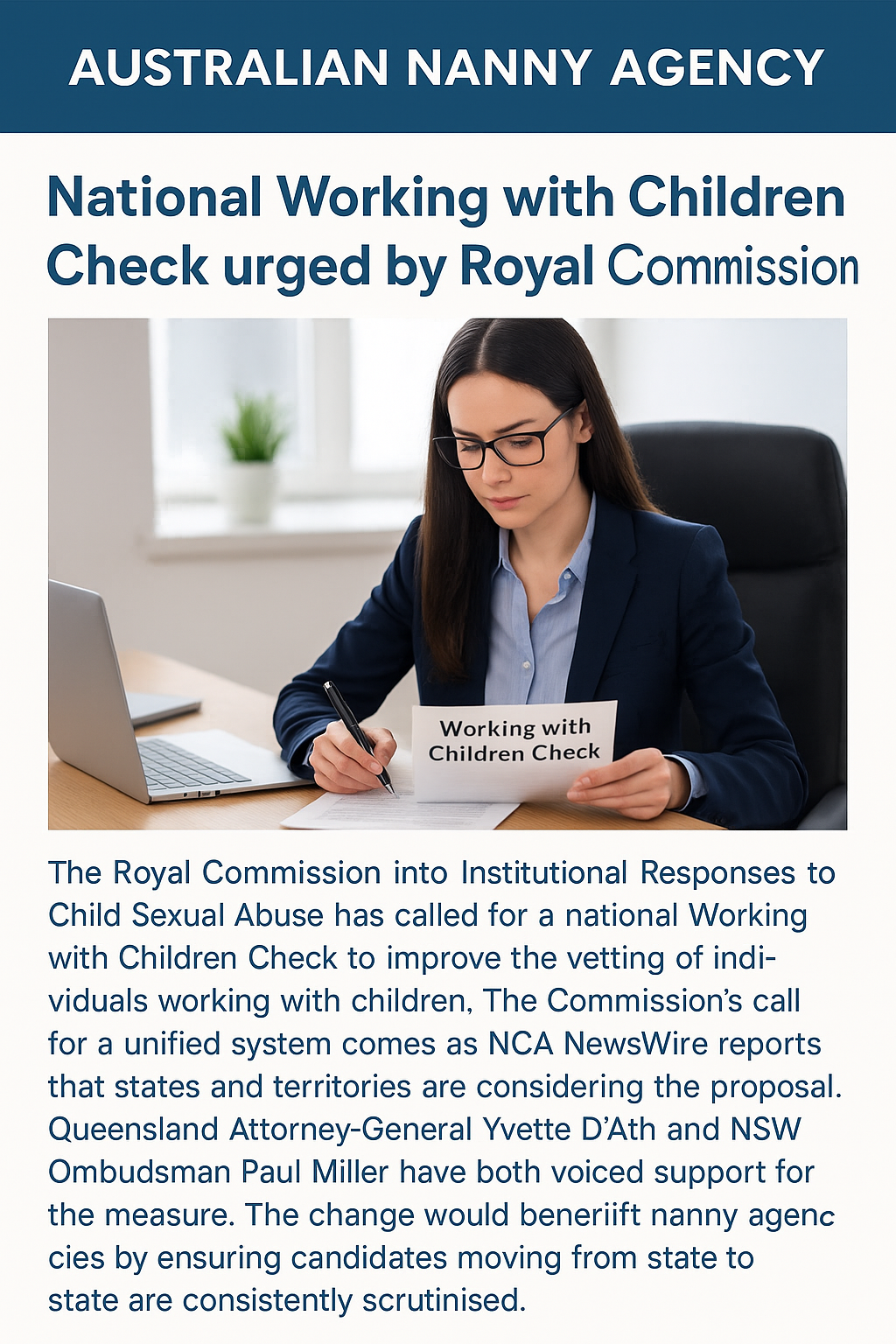Read our current information

How to Handle a Fussy Eater: A Survival Guide for Parents and Nannies There’s not much more frustrating than a fussy eater —except maybe a toddler who’s a fussy eater. Stubborn, unpredictable, and often completely irrational, these tiny tyrants can go from loving broccoli one day to declaring it the enemy the next. You may find yourself negotiating at the dinner table, wearing more food than your toddler actually eats, or giving in to the familiar fallback of fish fingers and tomato sauce for the ninth night in a row. Sound familiar? You’re not alone. The Reality Behind Fussy Eating A recent Australian survey found that 85% of parents and carers with children aged 2–12 feel frustrated by picky eating, worried their children aren't getting enough nutrients for healthy development. According to the Australian Bureau of Statistics, only 5.4% of children aged 2–18 are eating the recommended five daily servings of vegetables—often the first thing fussy eaters reject. At the same time, one in four children aged 5–17 is overweight or obese, showing how poor nutrition and selective eating can cause long-term health concerns. As a nanny or parent, you're likely responsible for a child’s nutrition. Helping them through this phase matters—for today and for their future habits. Practical Strategies That Work Lead by Example Children follow what they see. If you're not eating vegetables, they probably won't either. Choose meals that are colourful, nutritious, and that you genuinely enjoy eating. If you want them to eat it, show them how it's done. Get Them Involved Let them help prepare meals. Involving kids in shopping, washing vegetables, mixing ingredients, or even setting the table increases their interest and willingness to try what they’ve helped create. Be Strategic If mealtime battles are constant, temporarily blend vegetables into familiar meals. Grated carrot in spaghetti sauce or spinach in smoothies are simple ways to boost nutrients without the fight. Just remember, teaching them to eat whole fruits and vegetables should remain the long-term goal. Set Realistic Expectations Start small. Ask your child to touch or smell a food. Then encourage a small bite, over time. Praise any effort, even if they don’t like it in the end. That’s part of learning. Create Calm Mealtimes Avoid distractions and limit meals to 30 minutes. A calm environment helps children focus on their food. If toddlers are too wound up, take a few minutes of quiet time before meals so they can reset and focus. Don’t Use Junk Food as a Reward Avoid turning sugar-laden desserts into motivation. “Eat your veggies, then you get ice cream,” sends the wrong message. Children learn to see healthy food as a chore and dessert as the prize. Be firm. Stick to your message. It pays off. Offer Substitutions If your child refuses carrots, try corn or sweet potato. No to yoghurt? Offer cheese. Refuse red meat? Try chicken, beans, or mince-based dishes. Don’t give up—keep offering variety. Check for Underlying Issues Sometimes, fussy eating masks genuine discomfort. If you notice bloating, rashes, constipation, or digestive issues, seek medical advice. Teething, allergies, or sensory sensitivities can affect appetite. Fussy Eating Is a Phase—Not a Failure Mealtimes should be a time to connect, not a daily battle. Fussy eating is common and, in most cases, temporary. How you respond matters. Stay calm. Be consistent. And remember—your goal isn’t just one clean plate. It’s building a healthy relationship with food that lasts a lifetime. Need Support? If you're a nanny supporting a family with food challenges—or a parent seeking a helping hand—The Australian Nanny Agency connects families with nannies who understand nutrition, child behaviour. READ MORE What is Proxy Parenting How can they support families Top Qualities to look for in a Nanny Increased attention to mental Health More here: http://www.nutritionaustralia.org/national/resource/panicky-parents-fussy-eaters

Having a newborn baby, especially your first, is a wonderful and exciting time, but can also be an overwhelming time, filled with new responsibilities and challenges. The first few months can leave you feeling exhausted, emotional, and very stressed with the new routine, changes to your body and your baby. Breastfeeding can be a big part of the stress during this time. But there are many ways to get help with this. A great option is to hire a Maternity Nurse to help you with breastfeeding, relieving some of the stress and creating a positive experience. So how does hiring a Maternity Nurse help with breastfeeding? How do they help? A Maternity Nurse is a postnatal specialist and carer. Their expertise covers all elements of newborns, babies, and new mothers. They particulary skilled and experienced in newborn care and in supporting, teaching and ensuring are left feeling confident in their journey as new parents. A encouraging source of knowledge. Helping so many mothers through those first amazing days, weeks and months, of the journey of being a parent, hiring a Maternity Nurse is an investment in your family , definitely worth making. They will work with you to establish a routine regarding breastfeeding and work out a way how that can fit in with you, and your baby. Having someone there to make a structured plan will help you to relax more, focus on the tasks at hand knowing that you are on the right path, and that your Maternity Nurse is making sure everything is going to plan and adjust where needs be! Breast feeding Skills Breastfeeding is a skill, and it can be extremely challenging. Not all mothers adapt naturally, and in some cases may not be able to breastfeed at all, or for as long as they initially thought. It can be painful, stressful, and very difficult to commit to. This is one of the main issues your Maternity Nurse will help you with. They can show you all of the right and most comfortable, breastfeeding skills and techniques. Rather than having to struggle through it yourself, by hiring a Maternity Nurse they will give you all the tips and tricks. They will observe and make adjustments if needed, to ensure your baby is getting enough milk throughout the process. When the time comes for your Maternity Nurse to leave, you will have established a breastfeeding routine and obtained all the skills and confidence needed to keep you and your baby happy and healthy! General Support Hiring a Maternity Nurse will give you so much more than just help with breastfeeding though! They are there to support you with anything you can think of regarding your new-born. They will teach you the essentials of childcare, help you recover from birth and give you the confidence to take care of the baby yourself. Your Maternity Nurse will often be hired for approximately 12 weeks on a 12/7 or 24/7 basis. Meaning they can also cover night shifts – so that they are always there if needed during those first crucial weeks and months! Maternity Nurses come with all the suitable training and qualifications. From how to breast and bottle feed, sleep, bathing, routine and comfort techniques etc. More highly qualified Maternity Nurses can behold advanced knowledge in complex feeding issues, gut health, and birthing and may also have osteopathic, obstetric, and psychological knowledge, such as how to deal with and support postnatal depression. How can the Australian Nanny Agency Help? Australian Nanny Agency work with families all over the world, finding the most suitable Maternity Nurses for them and for their situation. Australian Nanny Agency have a wide variety of amazing Maternity Nurses on their books ready to help you and your new family. Whether this is for a couple of days or several months, we can find the right person for you. To find out more about what options work best for you do contact us here now and we look forward to speak to you!













































